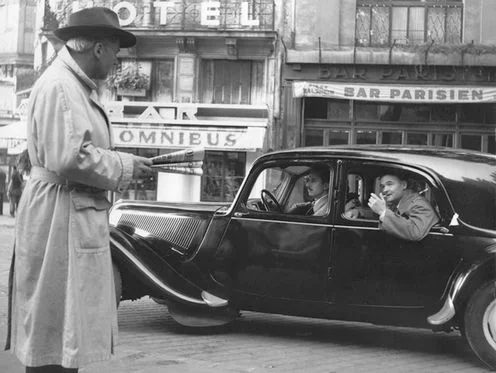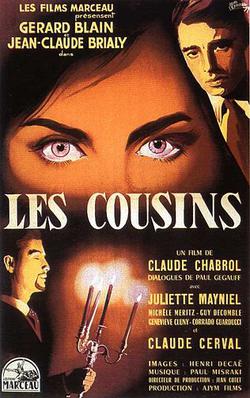
Bob le Flambeur (Jean-Pierre Melville, 1956)
Cast: Roger Duchesne, Guy Decomble, Isabelle Corey, Daniel Cauchy, André Garey, Gérard Buhr, Claude Cerval, Colette Fleury, René Havard, Simone Paris, Howard Vernon. Screenplay: Jean-Pierre Melville, August Le Breton. Cinematography: Henri Decaë. Production design: Claude Bouxin. Film editing: Monique Bonnot. Music: Eddie Barclay, Jo Boyer.
Sometimes the pleasures you get from a movie are not the intended ones of plot or action or dialogue. For example, I get a great delight from hearing how the French actors in Bob le Flambeur pronounce the title character's name: It's closer to "Bub" than to the American "Bahb." But even that incidental detail is somehow essential to what the film is all about: a reworking of American culture -- the gangster movie -- in the French manner. It would be different somehow if the title character were named Jules or Pierre or Marcel, but calling him Bob, even with a French accent, sets up all sorts of subliminal reverberations. It's intriguing that the foreign filmmakers who most successfully translated the gangster genre to their own cultures were the French and the Japanese. The latter reworked the figure of the samurai into that of the yakuza, while the former turned the existential loner into the outlaw. Jean-Pierre Melville's film is a celebrated precursor of the French New Wave, to which Melville himself became central in 1967 when he gave Alain Delon Bob's fedora and trenchcoat and made Le Samouraï, thereby merging all three cinematic gangster mythologies. For my part, the chief delight of Bob le Flambeur is its essential Frenchness, particularly Henri Decaë's lovingly crafted images of Montmartre, as masterly in their way as those of Lautrec or Utrillo.




























